Understanding ethical/consensual non-monogamous relationships
- Emily Duffy

- Apr 5, 2022
- 13 min read
Updated: Mar 29, 2025
Before going into this post, I think it's important to acknowledge that if a relationship is between consenting adults, then it is valid in whatever form that takes. This post isn't to say that monogamy or ethical/consensual non-monogamy are right or wrong in whatever way but is about gaining an understanding of the different types of ENM relationships there are and supporting those who are curious.
What is Ethical Non-Monogamy (ENM)?
Ethical Non-Monogamy (or Consensual Non-Monogamy) is an umbrella term to cover all different relationship types that don't conform to westernised monogamous relationship style i.e., relationships can be between multiple people to varying degrees, rather than being an exclusive couple (2 people in a relationship with only each other).
Types of ethical non monogamous relationships:
Open relationships - where a relationship has the guideline that dating, sexual contact, and/or romantic contact can happen outside of the primary relationship i.e., being open to other relationships. This can be true of one or all individuals in the relationship e.g., one person may be monogamous, but the other is polyamorous and open to other partners.
Swinging - Where people in a relationship are primarily open to sexual experiences through parties, events, or exchanging partners with another couple. Swinging is often planned and seen as event based rather than being open all the time.
Relationship anarchy - where there are no set guidelines on what the relationship is other than what is agreed between each partner. Taking the relationships out of the set constructs allowing there to be no expectations of what the relationship will be/where it will go.
Polyamory - being open to having multiple relationships at the same time. This can be where there is no set hierarchy, or it can be where couples have a primary relationship which they date outside of. Polyamorous relationships can also be a mix of romantic or sexual relationships.
Polyfidelity - where members in a polyamorous relationship will not date, have romantic partners or sexual partners outside of the members in the current relationship e.g., three people in a relationship making a triad and being committed solely to each other.
Monogamish - where a monogamous couple will occasionally open their relationship under certain circumstances as agreed with each other. E.g. 'hall pass' idea, going to a sex club together etc.
Myths about ENM relationships:
"ENM is just an excuse to cheat" - this is one of the common myths that comes up when talking about most ENM relationships. There's a significant difference between polyamory and cheating...
Cheating is a deception and break in trust between partners which can happen in any type of relationship.
Polyamory is agreed relationships between partners which is open and honest, and where boundaries are respected.
Cheating can still happen in Polyamorous relationships when someone is dishonest about their actions or hide relationships.
Cheating will be classed as different things in different relationships as it's dependant on the boundaries you feel outline your relationship e.g. for some watching porn alone is considered cheating whereas for others this is okay within their relationship.
"ENM is just people addicted to sex" - is actually really offensive and very presumptuous. Just because someone has multiple partners doesn't necessarily mean they are having sexual relations with all of them.
Relationships in ENM can be purely romantic in a non-sexual form.
This myth can be dismissive of individuals on the ace spectrum who may not want sexual relationships.
"Told you it wouldn't work" or "it's not sustainable" - This isn't helpful to tell anyone let alone it be true. Just think of how many marriages end in divorce, or how many relationships break up. Just because someone is in more than one relationship doesn't necessarily mean it won't work for any other reason than in monogamous relationships.
"You're just filling a void", "one partner is all you need", or "you're just with the wrong person" - again these are very misguided comments made to individuals in ENM relationships. We all have different needs; however we are responsible for our own needs. If someone meets them that's amazing, but it is not their responsibility!
As Esther Perel has once said - "Marriage was an economic institution in which you were given a partnership for life in terms of children and social status and succession and companionship. But now we want our partner to still give us all these things, but in addition I want you to be my best friend and my trusted confidant and my passionate lover to boot, and we live twice as long. So, we come to one person, and we basically are asking them to give us what once an entire village used to provide."
More likely to contract STDs - This is actually quite the opposite for individuals who are conscientious about their own health and their partners. Many individuals in ENM relationships will have frequent STD checks as well as using contraception to minimise risk where possible. As with monogamy and the initial phases of dating, this is a very individual thing and will depend on the person you are dating.
Engaging in ENM means you don't value anyone or is a form of avoiding intimacy i.e. "you're just bored", "so you can't commit to X then?" - If anything, engaging in ENM is an expansion of intimacy and commitment to multiple people. Having more than one relationship doesn't take away from the other relationship, it is just a parallel relationship. Each relationship will differ between each individual, there will be different needs, expectations, and boundaries for the relationships. ENM relationships take ALOT of communication (& scheduling) to make sure everyone involved is happy with the relationship and where it's going. There will always be people who don't hold value to others regardless of being in a monogamous relationship or in an ENM relationship.

The obstacles and difficulties you may face with ENM?
Jealousy - Understandably jealousy is a massive factor in why a lot of people don't explore ENM relationships even if they're curious. It is seen as an awful or 'wrong' emotion to have; however, jealousy is a chance to look inward and assess what is going on for you. Quite often jealousy is fear and comparison based e.g. "what if they love X more than me?", "What if they leave me for X?", "they're out having fun and I'm stuck here" etc. Jealousy is a completely natural & human emotion which is trying to tell us something that we need to take note of - maybe you're feeling like your needs aren't being met - if so it's a chance to reflect on what it is you do need and how you can overcome that.
Opening up from a monogamous relationship - this can be a real challenge and some people find it to feel quite threatening even though they want to be ENM. There is a lot to navigate and will bring up a lot of emotions (not all bad). As with jealousy, you may feel upset, elated, joyous, angry, anxious, excited, invigorated, scared etc. all of which have their place and will help guide you in the process to work out your boundaries and what you are comfortable with. The fantasy of ENM doesn't always match the reality so it is good to try and manage your expectations from the start and really talk with your partner about how it might look and what you're feeling at each step. Some people find having relationship counselling or individual counselling at this stage really useful as opening up a relationship does take a lot of talking and internal reflection as well as communication with your partner on where you both stand.
Rejection from support network - A big thing I deal with, with clients, and that I hear a lot of in the community is "I can't tell my family/friends about this as they will reject me or won't understand". This is a very individual and personal experience; we can never predict how someone is going to react to what we tell them so we need to look at what we can control. It is worth thinking about what you want out of your life and then whether this feels achievable. Whatever your relationship looks like, you need to consider what is right for you within that. There are many people who are completely open with being in ENM relationships, on the same spin there are many who only tell a select few about their relationships for fear of judgement and to protect themselves but this works for them, so long as you're open with your partner about where you stand on this!
Dating - Dating is a big draw back for many people as they may have had a bad experience in the past. Dating can feel daunting at the best of times, let alone when you're putting yourself out there as someone who is in ENM relationship(s). There are plenty of success stories though from dating sites when disclosing your relationship status (Okay Cupid being one of the better ones currently). Similarly, to the above, it's worth thinking about what you want out of dating people, if you have the time, and if you want to be on dating sites.
Stereotypes & misunderstanding in dating - There can be unfortunate misunderstandings within ENM dating - I've heard of people connecting with someone on a dating app and meeting only to be told they don't want anything other than a monogamous relationship - even though ENM was highlighted in their dating profile. It can be difficult for people disclosing both their sexuality and ENM status on dating sites (and in general) e.g. bi men will often be stereotyped as wanting to cheat on their partner, bi women can often be targeted by couples wanting a threesome etc.
Unicorn hunting - This is very much frowned upon in the polyam community as it can be done in a harmful way. Unicorn hunting is where a couple is looking for a third person to join their relationship in a sexual way. Now, this can be done in an ethical & boundaried way where all people involved have a say and are treated equally, however there are also a lot of couples that do this whereby they are looking for essentially a 'sex object' where the third's feelings/wants/needs aren't considered, and this is where the community has an issue.
Communication & boundaries - All relationships need to have communication in order to function at a base level. When looking at ENM relationships and communication this is so important to make sure everyone involved are on the same page, aware of their expectations, needs, boundaries, wants etc. Communication in this way isn't a one and done thing, it is a constant ongoing process that takes time, energy and attention. It will also need revisiting often in terms of boundaries where more partners are added to the relationships.
Energy levels - it can be a case of jumping all in when starting ENM relationships, so it's good to take a step back and check in with yourself where your energy levels are and how much you can dedicate to another person. Within polyamory there is a term of being 'polysaturated' and this is where you have reached your limit of how many partners you can dedicate time and energy to. This will vary for each person, and it can even be true for those that are single as maybe you're dealing with a lot outside of relationships that is taking most of your energy!
Being a 'newbie' within the community - A difficult and frustrating thing that can be found is a resistance from 'veteran'/'experienced' ENM individuals when looking to date or even offer guidance on relationships. This can be quite isolating and off-putting to a lot of people who are curious about ENM but not sure how to navigate it all.
To any experienced ENM individuals out there reading this & who have the energy to do so, please try and include newbies into discussions and the community - you may just learn something from them too. Reminding everyone that ALL relationships are different, and just because you're new to having multiple relationships or an open relationship to some extent doesn't mean that you don't have an idea of what is involved or what is expected of you. Everyone's experiences are valid and hold meaning.
Societal stigma - There is a negative stigma attached to non-monogamy in westernised societies due to the myths & stereotyping mentioned before. Stigma can unfortunately cause feelings of shame in those of us who hold value in others' opinions, so this is a big thing to take into consideration as it can bring up some difficult conversations and reflection on your self-worth and self-view. There is a societal view that a 'successful' relationship ends in marriage (of which our society sees as a pairing of 2 people) so it can take a lot to 'go against' this quite traditional standpoint especially if you don't know anyone else in an ENM relationship.
It’s likely that this mislabelling of non-monogamous individuals comes from a lack of understanding of how these relationships function, as clearly, there is no basis for it." From - https://www.attachmentproject.com/enm/
Roots of ENM & roots of Monogamy?
There is still so much ongoing research around past societies, how monogamy came about and where ENM fit within all of it too. It seems like for as long as there has been some form of monogamous standing in society there has also been ENM standing too.
There are many theories as to why monogamy has become the 'norm' in our society, especially over the last 1000 years; this is a lot to do with economic advantages, religious influence, as well as procreation and offspring upbringing. There is also a heavy influence from romantic views, in modern society, that we have 'one true love', our 'other half', our 'soul mate' being out there and that our life is not complete without finding that person. This way of being is put on us from the very beginning of life with stories, movies, TV shows, and books; yet if we were to lose our partner, for whatever reason, many go on to find another partner and fall in love again. Recent studies have found that 1 in 5 people have experienced an ENM relationship at some point in their life and so it is clear that there is some draw to ENM relationships.
This video explains it all really well and gives a broad overview of ENM in history - https://www.youtube.com/watch?v=MgOZ4eNFWnQ
However, asking the question whether monogamy/ENM relationships are 'natural' or 'normal' is complicated in itself as who is to say what is normal for all of humanity?
More articles around the evolution of relationships/partner structures:
Advice from the polyam community for those wanting to try an ENM relationship?
"ENM for me is about not placing arbitrary restrictions on people I'm in a relationship with. Knowing that the quality of my relationship is not impacted by their other relationships. We have multiple friends, why not more than one intimate partner?"
"Education! Read books, join help groups, talk to people with experience. Remember that a relationship can be whatever the people in the relationship chose it to be. So it's imperative that there's clear and constant communication."
"I found having a supportive community around me of people in ENM relationships was super helpful, to be able to draw off of others' experiences, and understand more about how other people's relationships work."
"It's not always an easy process, but each interaction is a chance to learn more about your current relationship and yourself. I you're willing to work through feelings that comes up and are patient with yourself, and your partners, ENM can be rewarding; but also know it's okay if doesn't work out for you"
My advice:
Do some reading around to get an informed view of what it is you're going into and think about what your boundaries might be.
Reflect on what it is you're wanting and whys - what are you hoping to get out of it? what does it mean for you? why do you want to explore ENM? Why now?
Take some time to look at yourself, how you express your emotions, and how you communicate - you will need to be able to do this for any relationship - and so it's important to get to grips with being open in this way.
Weigh up your pros and cons (these will be different for everybody) for opening up to ENM relationships. Pros for ENM might be: 'compersion', freedom to live your life in the way you want, building the trust in relationships, feeling more fulfilled. Cons might be: Takes up time to schedule, takes up energy to communicate with multiple partners, jealousy, stigma, logistics of living & upbringing of children etc. Only you will know what feels right for you in your relationship.
When bringing up ENM when in a monogamous relationship - have an idea of why you're bringing it up and what you want out of it, make sure to create a space where you listen to their side too. It is never going to be an easy conversation but as mentioned before we can't predict or control someone else's reactions. It might be worth writing down what it is you want to say and express, what it means for you, what you want out of it, offer reassurance if you're hoping to continue your current relationship, address ideas around boundaries and leave space for them to talk to. It will often be the case that this conversation is something you come back to a few times (and frequently after that) to allow for internal processing once you have an idea of how your partner has reacted and what it means to them. Be aware that you may be met with anger as it may feel like you're saying that they can't fulfil your needs, they're not good enough for you, you want someone else etc. so try to address this too and allow space for your partner to express their feelings around this (hopefully in a constructive way).
On the flip side, if you're the monogamous person and your partner comes to you it can be really difficult to not feel anxious and sometimes threatened in the relationship. Try to find reassurance in that they are comfortable enough and feel safe to come to you with this information and express their feelings in this way. It is not an easy situation - forgive yourself for any feelings that may arise and if you need space to process it all, do say that you need that. As above, take some time to reflect on it all, how you feel with it, if it's something you would want for yourself, would you want to open the relationship up fully, would you be comfortable staying a monogamous partner whilst they open up their side, maybe this relationship isn't something you can continue and you would only feel comfortable in an exclusively monogamous relationship. Try not to write your partner off straight away, take some time to talk it through again and get mutual understanding on what you both feel is doable within your boundaries/wants/expectations and take it from there.
It might be an idea to look into relationship counselling if you're both unsure of how to navigate the conversation but want to make the relationship work for you both, where possible (do check your counsellor is ENM inclusive). A relationship counsellor will be able to be an impartial voice, a safe space to talk your thoughts and feelings through, and may be able to offer some light guidance through reflection.
If you only take one thing away from this post, let it be this: whatever structure of relationship you are in is valid providing it's consensual between all involved. Monogamy isn't for everyone, and neither is ENM; If we do only get this one life to live, try to live it for you and what you want out of it.
Want to delve into this deeper check out my Beginners Guide to Non-Monogamy.
Are you a Therapist, Counsellor, Psychotherapist, or Mental Health Professional and want to know more about working with Non-Monogamous Clients? Check out my online CPD course - here
Further Resources:
Websites:
Books:
https://www.amazon.co.uk/Ethical-Slut-Practical-Polyamory-Relationships/dp/0399579664 - also on audible
https://www.amazon.co.uk/Polysecure-Attachment-Trauma-Consensual-Nonmonogamy/dp/1944934987 - also on audible
Podcasts:
Instagram:
Communities:
I am hesitant to recommend any as many are big groups and so each persons experience of them will be different but some ideas of places to look that others have found useful:
- Search "polyamory" on Facebook for groups you can join.
- Reddit has many different subreddits around non-monogamy:
- Try looking on meetup for in person non monogamy groups: https://www.meetup.com/topics/polyamory/
- Discord is a wonderful online community space with many servers available to join:




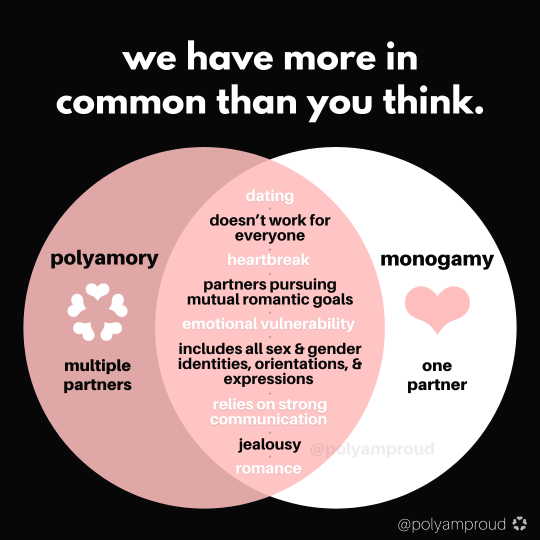

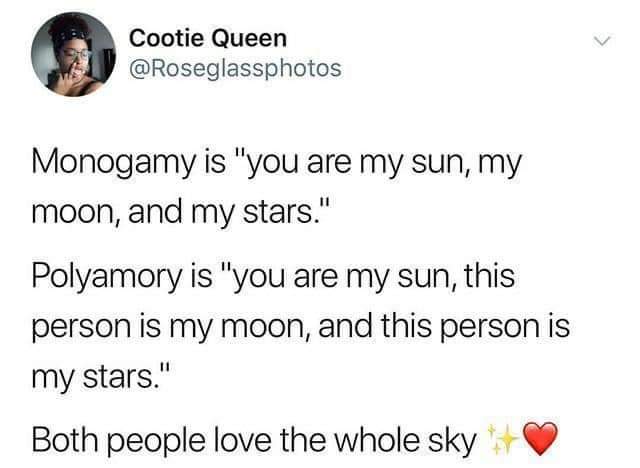

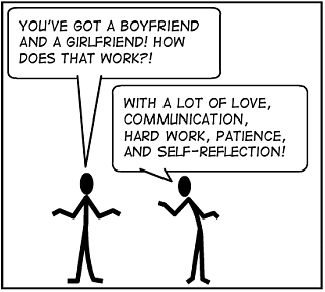

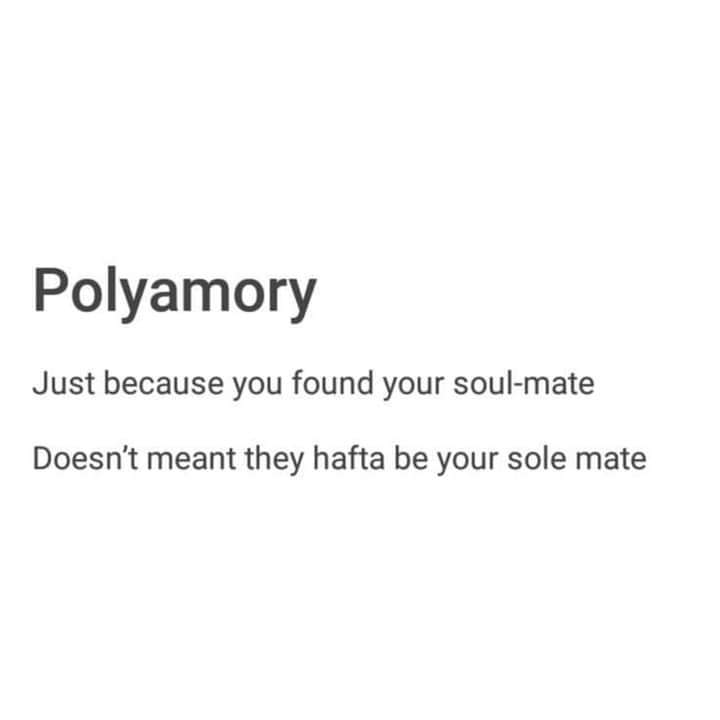

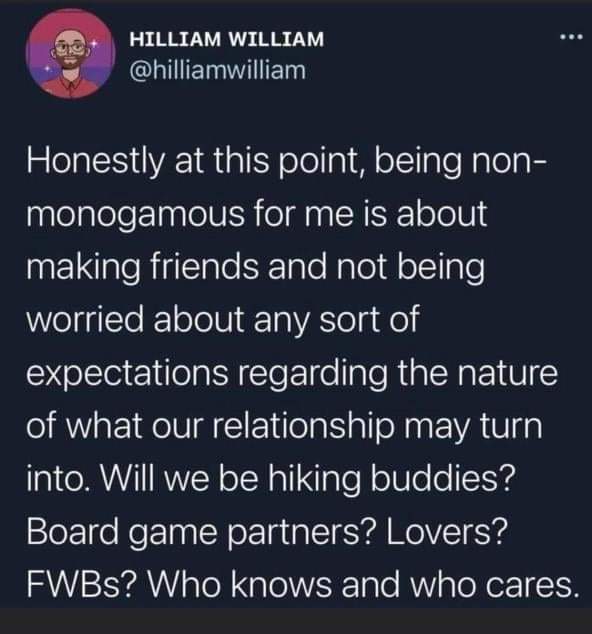

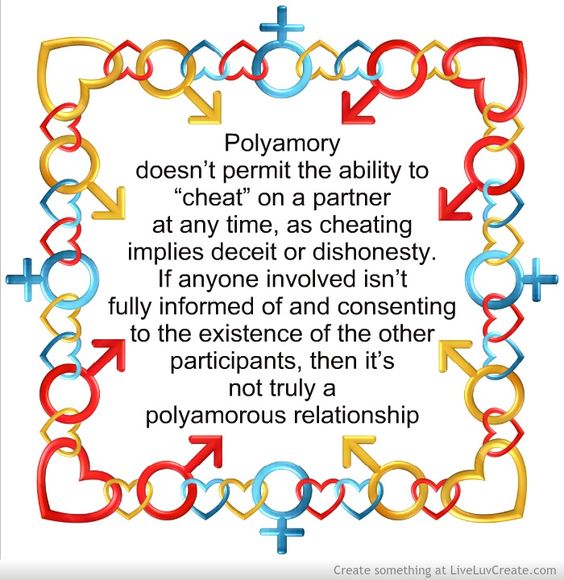



Comments